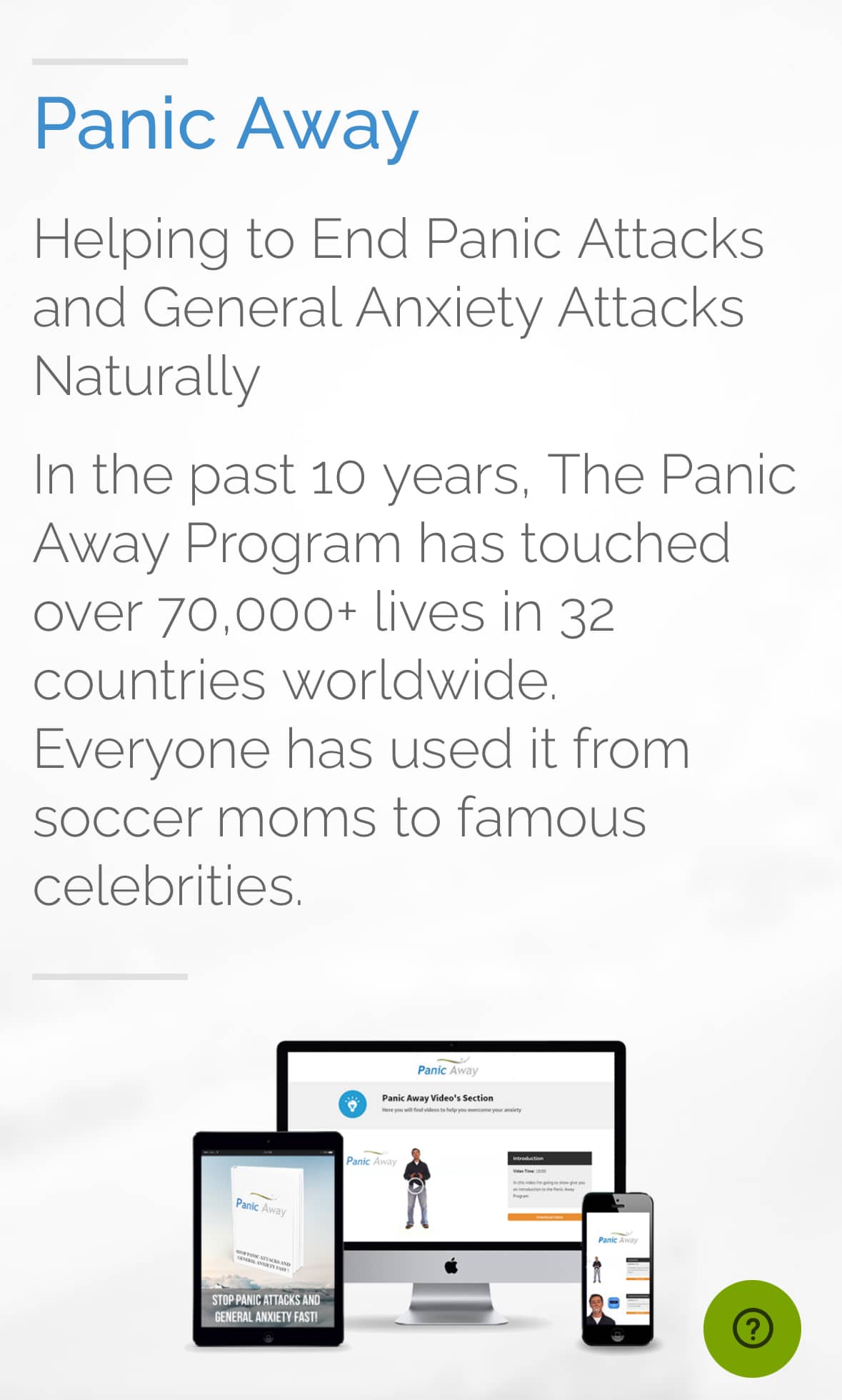9 Overlooked Symptoms of OCD

Obsessive-Compulsive Disorder (OCD) is a complex and often misunderstood mental health condition that affects millions of people worldwide.
OCD has been classified by the World Health Organization as one the leading causes of disability worldwide.
most of us associate OCD with visible rituals like repetitive handwashing or checking locks repeatedly, there is a hidden side to this disorder that often goes unnoticed.
Behind closed doors, individuals with OCD grapple with a myriad of symptoms that are not immediately apparent to the outside world. In this article, we embark on a journey to uncover the lesser-known aspects of OCD, shedding light on nine often overlooked symptoms that silently torment those who experience them.
By gaining a deeper understanding of these hidden struggles, we aim to foster empathy, provide support, and ultimately contribute to a more compassionate and informed perspective on OCD.
Join us as we explore the intricate tapestry of Obsessive-Compulsive Disorder beyond its surface manifestations.
Related Articles – The Ongoing Struggle: 257 Days of OCD and Intrusive Memories

Ready to reclaim your life, one fearless step at a time? Your personalized path to anxiety-free living starts now!
Unlock your extraordinary future with PanicAway!
Don’t let anxiety define your story. Choose PanicAway, and step into a world bursting with limitless opportunities and unshakable self-assurance. Your personalized path to an extraordinary life is right here!
Meet PanicAway: Your Personal Roadmap to Liberation from Anxiety
Tired of letting anxiety steal the best moments of your life? It’s time to take charge and embrace a world filled with possibilities, free from fear and panic.
Why PanicAway is Your Perfect Ally in this Journey:
- Immediate Relief: Imagine those sleepless nights and crippling panic attacks becoming distant memories. PanicAway arms you with techniques for instant anxiety relief, putting you back in control.
- Empowerment from Within: It’s not about just managing anxiety; it’s about conquering it at its core. Rediscover your inner strength and emerge as a fearless, empowered version of yourself.
- Reclaim Your Freedom: Visualize a life where anxiety no longer dictates your choices. With PanicAway, you’ll savor the freedom to chase your dreams, explore the world, and seize every opportunity with unwavering confidence.
- Proven Success Stories: Join the community of individuals who’ve transformed their lives with PanicAway. You can be the next success story, and we can’t wait to celebrate your triumph!
- Comprehensive Support: You gain access to a treasure trove of resources, from life-changing e-books to enlightening audio guides. Plus, connect with kindred spirits on their own journeys to overcome anxiety.
Commonly Known OCD Symptoms

Obsessions
These are intrusive and distressing thoughts, urges, or mental images.
Common obsessions can include fears of harm to oneself or others, worries about contamination, or concerns about symmetry or order.
Compulsions
Compulsions are repetitive behaviors or mental acts performed to reduce the anxiety caused by obsessions.
Examples of compulsions include excessive handwashing, counting, or repeating specific words or phrases.
Fear of Contamination
Individuals with this obsession may fear germs, dirt, or chemicals.
They often engage in excessive cleaning, disinfecting, or avoiding places they believe are contaminated.
Checking
This involves repeatedly verifying things, such as whether doors are locked, stoves are turned off, or alarms are set.
The checking compulsion is driven by the fear of something terrible happening if these actions are not performed.
Hoarding
Hoarding involves the excessive acquisition of items and the difficulty in discarding them, regardless of their value.
People with hoarding compulsions often have homes filled with clutter.
Symmetry and Orderliness
Some individuals need things to be arranged in a specific way or symmetrically.
They may spend excessive time arranging and rearranging items to achieve this order.
Counting and Repeating
Counting or repeating specific words, phrases, or actions is a common compulsion.
These behaviors are often performed to prevent harm or to reduce anxiety.
Intrusive Thoughts
Intrusive thoughts are unwanted, severe and persistent problems and disturbing mental images or ideas.
They can be violent, sexual, or otherwise taboo, causing significant distress.
Mental Rituals
These are mental acts performed to neutralize obsessive thoughts and decrease intense anxiety
Examples include compulsive behaviors mental prayers, counting, or mentally reviewing situations to ensure nothing bad will happen.
Avoidance
People with OCD may avoid situations, places, or people that trigger their obsessions or compulsions.
Avoidance can significantly impact daily life and activities.
It’s important to remember that OCD varies from person to person, and not everyone experiences all of these symptoms.
Diagnosis and treatment should be guided by a mental health professional who can tailor interventions to the individual’s specific anxiety disorders and other symptoms.
Related Articles – Moral Absolutism in OCD
What Are Rare Forms of OCD?

Rare forms of Obsessive-Compulsive Disorder (OCD) are characterized by unique or less common obsessions and compulsions. These variants can be challenging to diagnose and treat, and they often require specialized care. Some rare forms of OCD include:
Pure O (Pure Obsessional) OCD
This subtype involves primarily mental obsessions with fewer visible compulsions.
Individuals may experience distressing and unwanted thoughts, fears, or doubts without engaging in visible rituals.
These obsessions can be related to themes like harm, emotional contamination, morality, or unwanted impulses.
Sexual Orientation OCD (HOCD/POCD)
Individuals with this subtype have obsessions about their sexual orientation or fears that they are attracted to unwanted or inappropriate people.
HOCD (Homosexual OCD) and POCD (Pedophilic OCD) are specific forms of this subtype.
Scrupulosity
Scrupulosity OCD involves obsessive concerns about religious or moral issues.
Individuals may experience excessive guilt, fear of committing blasphemy, or worries about being immoral.
Existential OCD
People with this form of OCD grapple with profound philosophical or existential questions.
They may obsess about the nature of reality, the meaning of life, or their own existence.
Sensorimotor OCD
In this subtype, also called somatic obsessions individuals become overly aware of bodily sensations or bodily processes.
They may obsess about breathing, swallowing, or other normally automatic functions.
Symmetrical OCD
While a need for symmetry and order is common in OCD, some individuals have an extreme preoccupation with creating perfect symmetry (just the right thing).
They may spend excessive time and effort making sure everything is perfectly balanced.
Magical Thinking OCD
This subtype involves beliefs in magical or superstitious thinking.
Individuals may believe that certain actions or thoughts have the power to cause harm or bad luck.
Hypochondriasis OCD (Illness Anxiety Disorder)
Individuals with this form of OCD have excessive health-related fears.
They may obsessively worry about having a serious illness, even with no medical evidence to support it.
It’s crucial to recognize that individuals with rare forms of OCD often suffer in silence due to the stigma associated with their common symptoms.
Proper diagnosis in treating OCD by mental health professionals, including specialized therapies such as Exposure and Response Prevention (ERP), can be highly effective in managing these rare OCD subtypes.
Related Articles – Can OCD Cause Brain Damage?
9 Overlooked Symptoms of OCD

Mental Rituals
OCD can manifest in various forms, including covert mental rituals. Individuals may engage in activities like mentally counting, repeating phrases, or silently praying in response to obsessions.
These internal processes can be highly distressing but often remain hidden because they are not observable behaviors.
Sufferers might struggle to articulate these mental rituals, making them less likely to be recognized as symptoms of OCD.
Emotional Distress
Beyond the anxiety commonly associated with OCD, individuals often experience intense emotional distress caused by disturbing thoughts.
Feelings of guilt, shame, and depression can accompany obsessions and compulsions.
These emotional symptoms are often internalized and may not be readily apparent to others, masking the true extent of the individual’s suffering.
Avoidance Behavior
People with OCD frequently engage in avoidance behaviors to prevent encountering situations or triggers that exacerbate their obsessions.
These behaviors can be subtle, and those around them may not realize the extent to which individuals with OCD go to avoid their fears.
Individuals often provide alternative explanations for their actions, further obscuring their avoidance tendencies.
Intrusive Images
Some OCD sufferers experience intrusive thoughts in the form of vivid mental images or visions.
These images can be deeply distressing and personalized, making them difficult to convey to others. The internal nature of these experiences often leads to their being overlooked.
Safety-Seeking Behaviors
Safety behaviors involve covert actions taken to prevent feared outcomes.
For instance, someone with OCD might engage in rituals like avoiding cracks in the sidewalk or touching objects with a tissue to mitigate their anxieties.
Since these behaviors are not always overt or noticeable, they frequently escape detection.
Reassurance-Seeking
Individuals with OCD often seek reassurance from others about their fears and doubts. This might involve repeatedly asking questions or seeking validation from family members.
This behavior can be misconstrued as a normal part of interaction or seeking advice, making it less likely to be identified as a compulsion.
Perfectionism
Extreme perfectionism is a prevalent feature of OCD. However, perfectionism is often regarded as a positive trait.
The distress it causes and its association with obsessive-compulsive tendencies may not be immediately apparent to others, leading to a lack of recognition.
Time-Consuming Thoughts
OCD can consume a substantial amount of an individual’s daily life.
Obsessions and compulsions can be time-consuming, affecting work, relationships, and daily tasks. This time commitment may go unnoticed by others if it does not involve visible rituals.
Compulsive Confession
Some individuals with OCD feel compelled to confess their intrusive thoughts or perceived wrongdoings to others. This confession compulsion arises from guilt or anxiety.
Loved ones may not recognize this behavior as a symptom of OCD, and in some cases, they may encourage it, inadvertently perpetuating the cycle.
These negative thoughts often remain concealed because the stereotypical image of OCD focuses on observable rituals and cleaning behaviors.
Additionally, individuals with OCD frequently go to great lengths to conceal their symptoms due to feelings of embarrassment or shame, further contributing to their invisibility.
Raising awareness about these less apparent signs of OCD is crucial for early diagnosis (early signs) and providing the appropriate support and treatment.
Related Articles – Can Music Therapy Help OCD
Why it’s Important to be Aware of All OCD Symptoms

Recognizing and learning about all symptoms of Obsessive-Compulsive Disorder (OCD), including the often overlooked ones, is crucial for several reasons, making it relevant to readers:
Accurate Diagnosis
Understanding the full spectrum of OCD symptoms ensures accurate diagnosis by mental health professionals.
When individuals and clinicians are aware of less apparent signs, they can identify OCD in its various presentations, leading to more effective treatment plans.
Early Intervention
Identifying OCD, even in its less conspicuous forms, allows for early intervention.
Early treatment can help prevent the progression of symptoms and mitigate the impact of the disorder on an individual’s life.
Reducing Suffering
OCD can cause immense suffering, regardless of the specific symptoms.
Being aware of less visible symptoms helps reduce unnecessary distress by ensuring individuals receive timely support and treatment.
Improved Relationships
Loved ones often play a pivotal role in recognizing OCD symptoms.
Educating family and friends about the full range of OCD manifestations helps them offer more understanding and support to those affected, strengthening relationships.
Reducing Stigma
Misunderstandings about OCD may lead to stigmatization.
When people are aware that OCD encompasses various symptoms, including mental rituals and emotional distress, it reduces stigma and promotes empathy, fostering a more inclusive society.
Enhanced Treatment
Tailoring treatment to an individual’s specific symptoms is essential for therapeutic success.
Recognizing all symptoms allows clinicians to provide more targeted therapies, such as Exposure and Response Prevention (ERP), Cognitive-Behavioral Therapy (CBT), or medication.
Preventing Misdiagnosis
Some less obvious OCD symptoms may be mistaken for other mental health conditions.
A thorough understanding of the full array of OCD presentations helps prevent misdiagnosis and ensures individuals receive the right treatment.
Personal Empowerment
Knowledge is empowering. When individuals with OCD are aware of the breadth of symptoms associated with the disorder, they are better equipped to seek help, engage in self-help strategies, and advocate for their own mental health needs.
In summary, awareness of all OCD symptoms is crucial because it promotes accurate diagnosis, early intervention, and appropriate treatment.
It reduces suffering, fosters empathy and understanding, and ultimately improves the quality of life for individuals affected by OCD.
By shedding light on the often overlooked aspects of OCD, we can create a more informed and supportive community for those facing this challenging mental health condition.
Related Articles – How to Help Someone With Obsessive Thoughts

Ready to reclaim your life, one fearless step at a time? Your personalized path to anxiety-free living starts now!
Unlock your extraordinary future with PanicAway!
Don’t let anxiety define your story. Choose PanicAway, and step into a world bursting with limitless opportunities and unshakable self-assurance. Your personalized path to an extraordinary life is right here!
Meet PanicAway: Your Personal Roadmap to Liberation from Anxiety
Tired of letting anxiety steal the best moments of your life? It’s time to take charge and embrace a world filled with possibilities, free from fear and panic.
Why PanicAway is Your Perfect Ally in this Journey:
- Immediate Relief: Imagine those sleepless nights and crippling panic attacks becoming distant memories. PanicAway arms you with techniques for instant anxiety relief, putting you back in control.
- Empowerment from Within: It’s not about just managing anxiety; it’s about conquering it at its core. Rediscover your inner strength and emerge as a fearless, empowered version of yourself.
- Reclaim Your Freedom: Visualize a life where anxiety no longer dictates your choices. With PanicAway, you’ll savor the freedom to chase your dreams, explore the world, and seize every opportunity with unwavering confidence.
- Proven Success Stories: Join the community of individuals who’ve transformed their lives with PanicAway. You can be the next success story, and we can’t wait to celebrate your triumph!
- Comprehensive Support: You gain access to a treasure trove of resources, from life-changing e-books to enlightening audio guides. Plus, connect with kindred spirits on their own journeys to overcome anxiety.
Final Thoughts on The Overlooked Symptoms of OCD
In conclusion, our exploration of the nine often overlooked symptoms of Obsessive-Compulsive Disorder (OCD) has revealed a world of hidden struggles that many individuals face in silence.
From covert mental rituals to the weight of emotional distress, these aspects of OCD are not readily visible but profoundly impact the lives of those affected.
Recognizing these symptoms is vital for accurate diagnosis, early intervention, and providing the right support. It also serves to reduce stigma, promote empathy, and strengthen relationships within our communities.
Our hope is that by shedding light on these less apparent signs of OCD, we have contributed to a broader understanding of this complex condition.
Through knowledge and compassion, we can create a more inclusive and supportive environment where individuals with OCD feel heard, validated, and empowered to seek the help they need.
As we collectively strive to break down the barriers of misunderstanding surrounding OCD, let us remember that each individual’s experience with the disorder is unique.
By acknowledging and addressing all its facets, we move one step closer to a world where mental health is truly understood and embraced.


